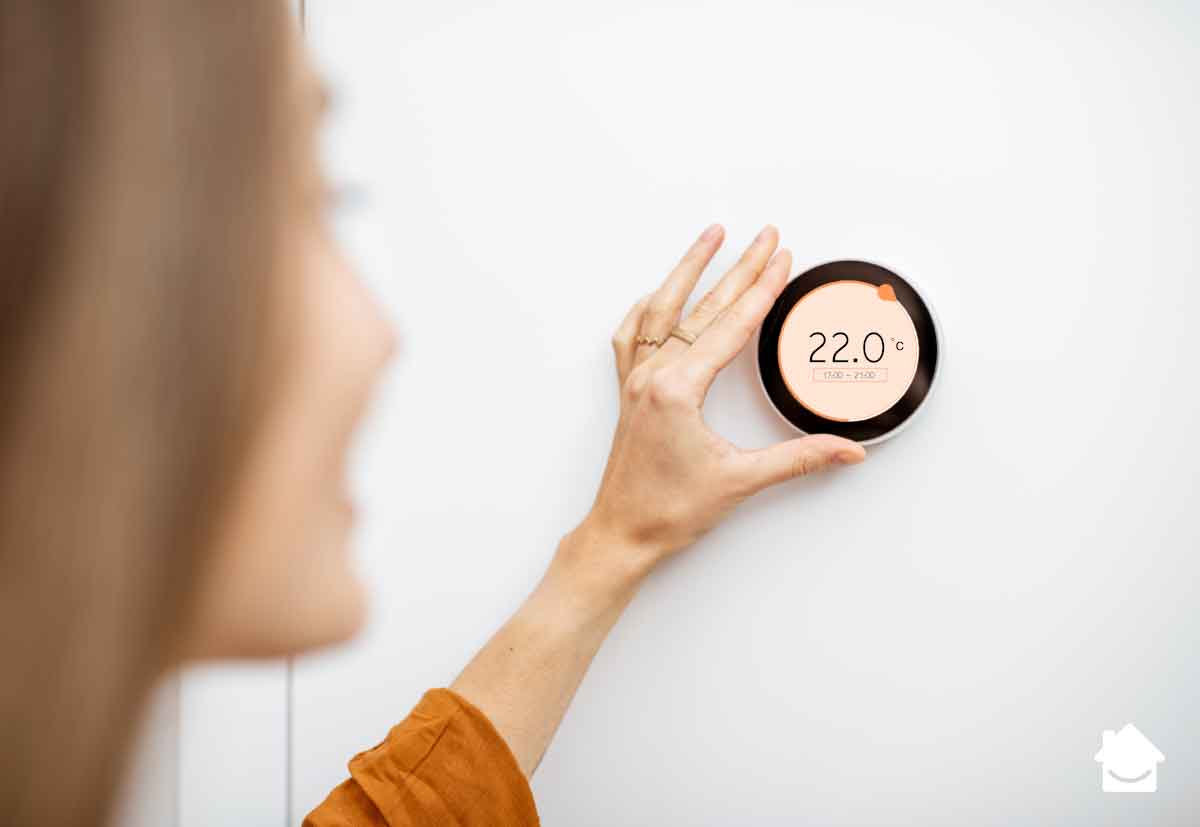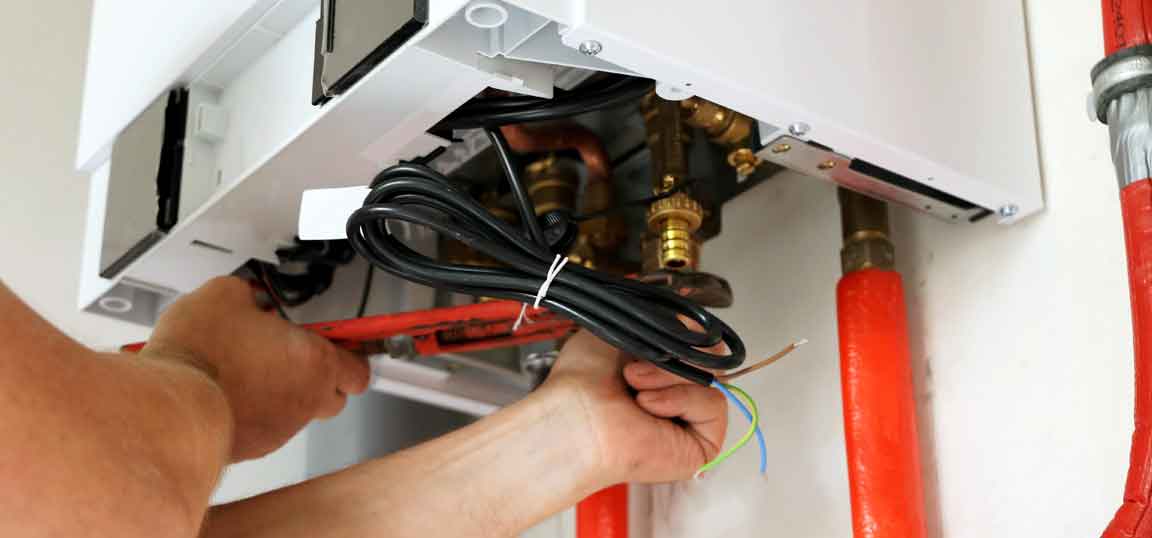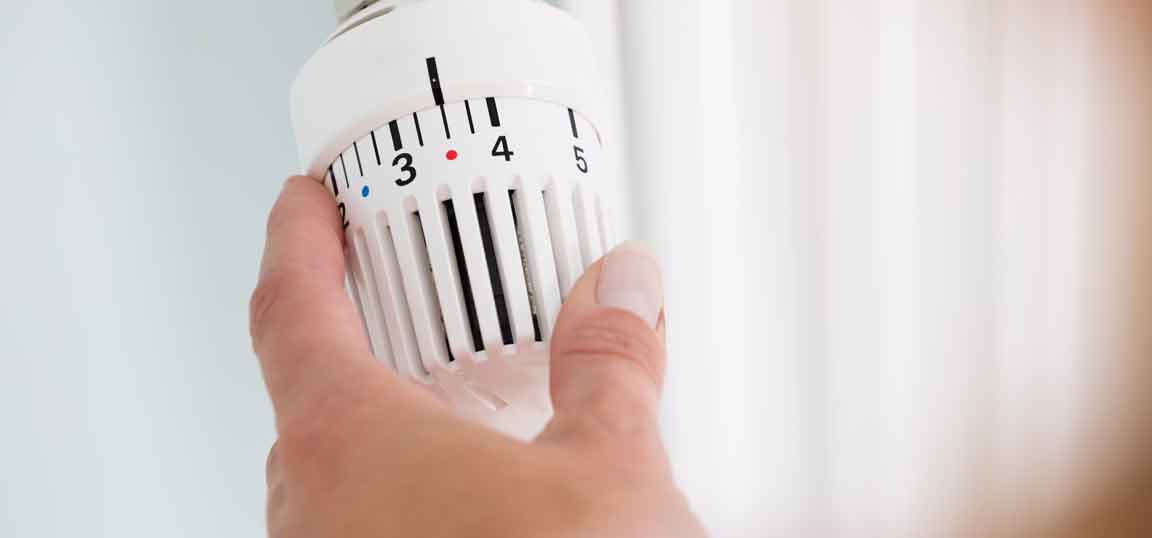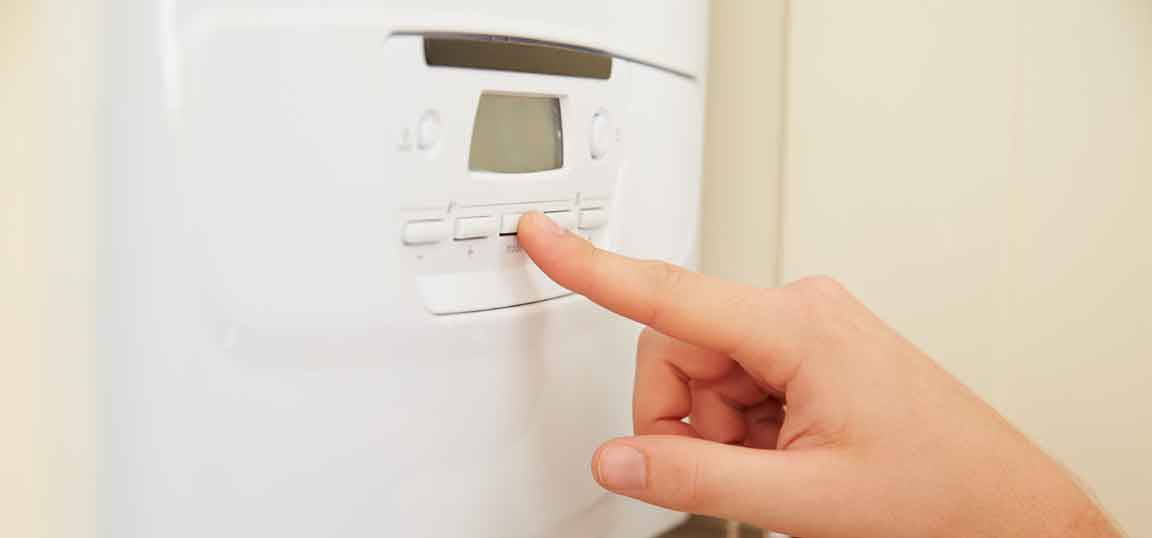Home heating advice
Five things to check before turning the heating on
30 Oct 2018 • 5 minutes

Home heating advice
30 Oct 2018 • 5 minutes

Winter is here and most of us will now be having the usual household debate between donning another jumper, or finally giving in and popping the heating on. But if your boiler has been hibernating through the summer months, it might not be too happy at the prospect of working the winter shift.
So to make sure that your boiler works as hard as it should, here’s 5 things to check before turning on your central heating:
 One of the biggest contributors to your energy bills is your central heating, so making sure it’s in tip top shape for Winter is a must! Over 78% of boiler breakdowns happen in August and winter, which is why it’s best to get your boiler serviced during the summer. That way if anything does crop up, you have enough time to get it sorted and ready for when you need it.
One of the biggest contributors to your energy bills is your central heating, so making sure it’s in tip top shape for Winter is a must! Over 78% of boiler breakdowns happen in August and winter, which is why it’s best to get your boiler serviced during the summer. That way if anything does crop up, you have enough time to get it sorted and ready for when you need it.
But don’t worry, if you haven’t yet had your boiler serviced this year, there’s still time. Tradesmen can service your boiler all year round – it may just be a little easier to book someone when the weather is fairer!
 Unless you have big family at home, then the chances of you needing to heat all the rooms in your house to the same temperature are pretty slim. Did you know that you can avoid wasting money on heating up the spare room (that seems to have become an extended wardrobe) by installing thermostatic valves on your radiators? It’s a great place to start.
Unless you have big family at home, then the chances of you needing to heat all the rooms in your house to the same temperature are pretty slim. Did you know that you can avoid wasting money on heating up the spare room (that seems to have become an extended wardrobe) by installing thermostatic valves on your radiators? It’s a great place to start.
You can pick up thermostatic valves from most DIY stores, so you can then set the rooms you don’t use much to a lower temperature, easing the workload on your boiler and saving some of your hard earned cash!
It’s also a great idea to bleed your radiators (watch our video guide) before firing up your central heating to ensure they’re all working as efficiently as they can (and your boiler doesn’t have to work as hard to heat up your home).
 It’s not just about the workings of your central heating that you should check, but also your house! There’s no point in making your heating system operate as efficiently as possible, if you’re going to lose all that warmth to a draught!
It’s not just about the workings of your central heating that you should check, but also your house! There’s no point in making your heating system operate as efficiently as possible, if you’re going to lose all that warmth to a draught!
Draught proofing your home is a relatively inexpensive job which anyone can do, and not only does it save you energy and money, but also reduces the amount of work your boiler needs to do, to keep your home nice and toasty – not to mention it will help keep your boiler healthier for longer.
But where to start? Here’s a few common places to check:
Further reading: Check out our handy guide for more ideas on how to draught proof your home.
 Heating your home when you’re not there is not only a waste of time and money but also puts unnecessary strain on your central heating system. So while you’re doing your checks, it’s worth remembering to make sure your timer and thermostat are also working properly. This includes checking the time is set correctly as well as the temperature – if it’s set too low then your heating will not switch on.
Heating your home when you’re not there is not only a waste of time and money but also puts unnecessary strain on your central heating system. So while you’re doing your checks, it’s worth remembering to make sure your timer and thermostat are also working properly. This includes checking the time is set correctly as well as the temperature – if it’s set too low then your heating will not switch on.
If you don’t have a set routine, then it might be worth investing in a Smart Thermostat. One of these little devices will allow you to alter your heating from your phone – ensuring that your home is perfectly toasty, ready for when you get back (even if you decided to pop to the shops on your way home from work). Understanding what Smart Thermostats are, and why it could be good for your home can seem a little daunting, but there are plenty of benefits of having a Smart Thermostat – plus, they’re very straightforward to install!
 Diagnosing central heating problems can be tricky, but a few simple checks before switching on your central heating can help resolve potential boiler breakdowns.
Diagnosing central heating problems can be tricky, but a few simple checks before switching on your central heating can help resolve potential boiler breakdowns.
Things to look out for:
If you’re unsure about any problems with your boiler, you should call a qualified engineer to fix it.
Carrying out these checks will help make sure that your boiler can do its job throughout the chilly seasons – so you can carry on with your day, safe in the knowledge that when you get home, it will be nice and warm!
Our help & advice articles cover Plumbing, Home heating, Electrical, Energy-saving and Home maintenance.